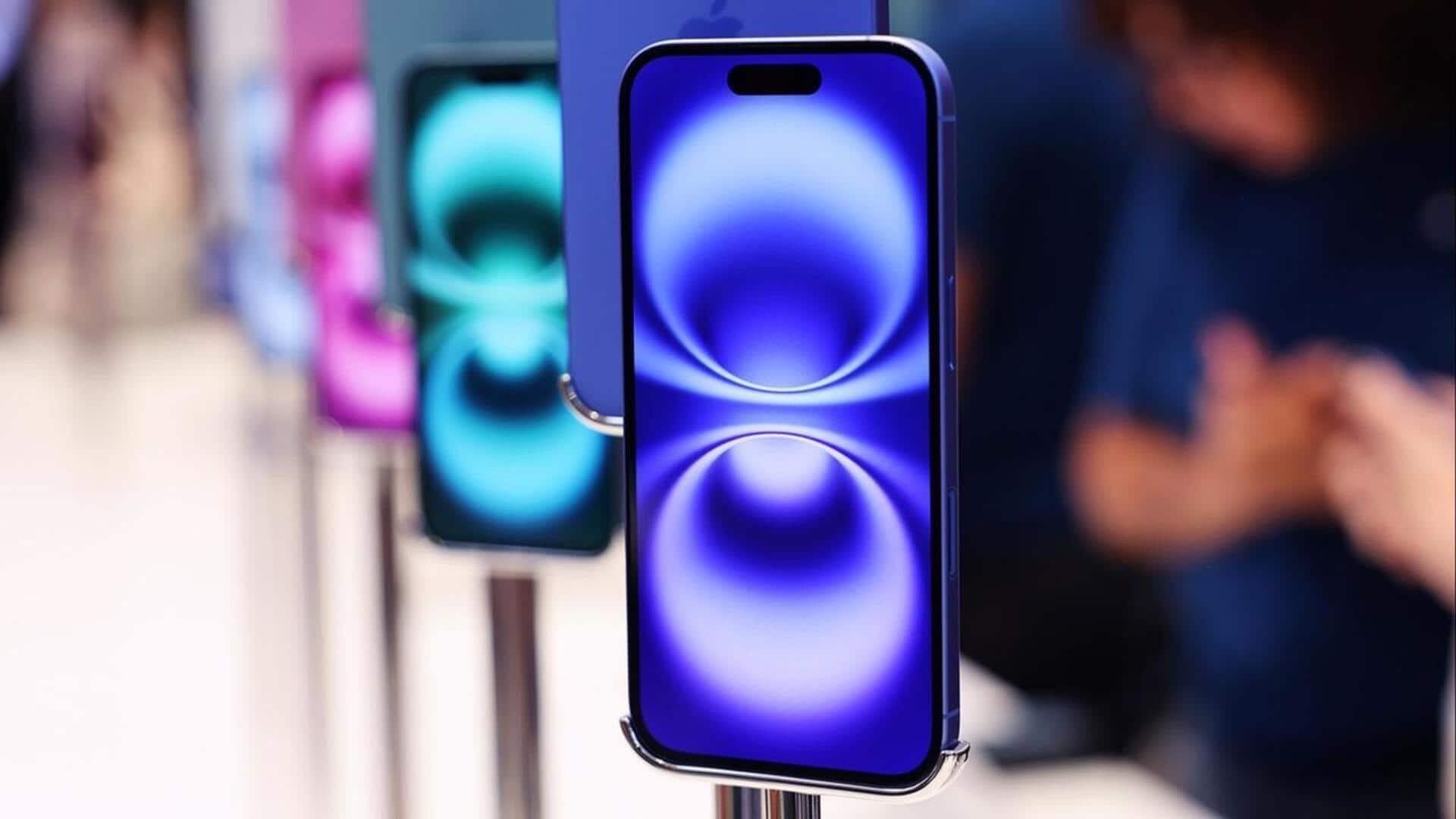
Apple's iPhone 16 is now banned in Indonesia: Here's why
What's the story
Indonesia has halted the marketing and sale of Apple's latest model, the iPhone 16.
The move comes after Apple failed to comply with local investment rules, the country's industry ministry said.
Despite having a tech-savvy population of over 100 million people under 30 years old, Apple does not have an official store in Indonesia. This drives consumers to resale platforms to buy its products.
Regulatory non-compliance
Local unit fails to meet 40% local parts requirement
The industry ministry's spokesperson, Febri Hendri Antoni Arif, clarified that imported iPhone 16 models couldn't be sold domestically.
This is because Apple's local unit failed to meet a requirement that mandates 40% of phones be made from local parts.
"Apple Indonesia has not fulfilled its investment commitment to obtain... certification," Arif stated.
To comply with this regulation, Apple needs to invest in Indonesia and source Indonesian materials for iPhone components.
Investment deficit
Investment falls short of commitment
Apple had earlier promised to invest IDR 1.7 trillion in Indonesia, but had only invested IDR 1.5 trillion till earlier this month, Bloomberg reported.
The ministry clarified that new Apple phones could be brought into Indonesia for personal use, but not for commercial trade.
Only 9,000 units of the new model are estimated to have entered the country so far.
Although those units were imported legally, selling them in Indonesia would be illegal.
Trade restrictions
Import bans aim to boost domestic production
Indonesia has tried similar bans in the past to boost domestic production, with mixed results.
An import ban on 4,000 goods including laptops and raw materials imposed in March, resulted in a laptop shortage in the country.
However, decades-long restrictions on mineral ore imports have fueled growth in Indonesia's own battery sector.
Market dynamics
Apple's absence in Indonesia's smartphone market
Indonesia's smartphone market shipment share in Q2 was dominated by China's Xiaomi, Vivo, and OPPO as well as South Korea's Samsung, according to Counterpoint Research.
Notably, the absence in Indonesia is a missed opportunity for Apple, which is enjoying significant success in other Asian nations.
There are 350 million active mobile phones in Indonesia — even higher than the current population (280 million) of the country, Bloomberg reported.
Investment initiatives
Efforts to invest in Indonesia
In April, Apple CEO Tim Cook visited Indonesia to explore investment opportunities in Southeast Asia's largest economy, and diversify supply chains away from China.
He met with then President Joko Widodo and his successor Prabowo Subianto for talks after announcing plans to expand its developer academies in the country.
Reports suggest that not just the iPhone 16 but also the Watch Series 10 is unavailable in Indonesia due to these issues.